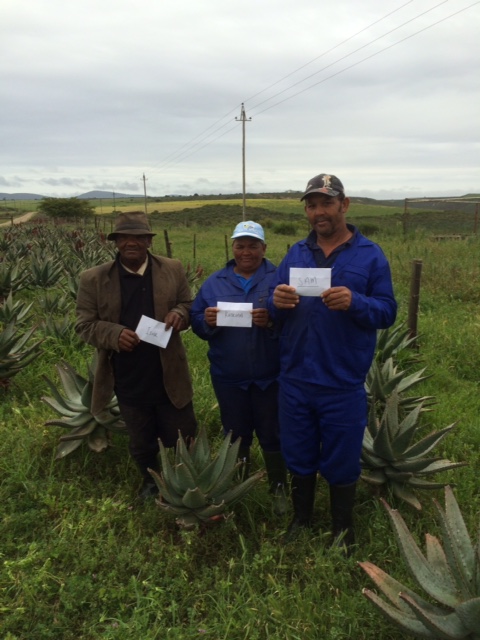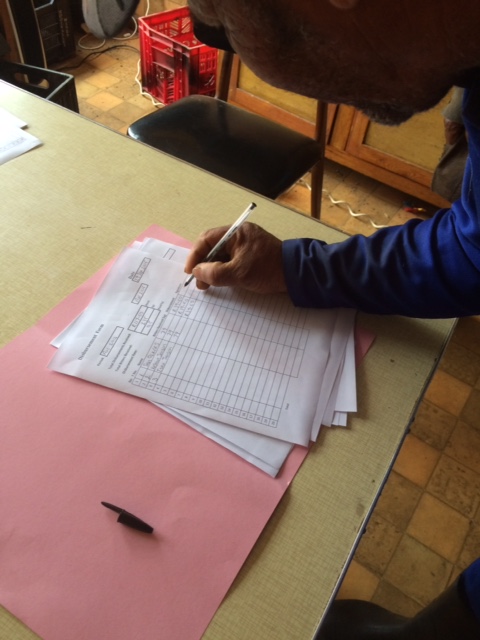For posterity, here is a copy of the ACSA, BABS Position Paper V1 0 5 June 2013, as well as a the related slide presentation. ACSA, BABS Worshop, V1.0, 25 Aug 2013

For posterity, here is a copy of the ACSA, BABS Position Paper V1 0 5 June 2013, as well as a the related slide presentation. ACSA, BABS Worshop, V1.0, 25 Aug 2013
I think for the first time ACSA, and the bio-industry in general, have reached through to the decision makers in DEA who are prepared to work with industry to develop industry specific solutions to BABS. Dr Moskou Morumo personally chaired most of the meeting and we were able to actively engage him on the issues at hand. There is acknowledgement from DEA that the current BABS regulation is flawed and that they and industry must work together to fix it. The important point is that we have a very real opportunity to be part of the solution – and we should use it.
This forum (the Bioprospecting Forum) is formally acknowledged by the minister as the vehicle through which all aspects relating to the content and implementation of the BABS regulation will be managed. ACSA has a formal seat on this forum and is the default representative of the aloe industry. Working groups have been identified to look into issues of permitting, benefit sharing (bsa) and material transfer agreements (mta). Within each of these groups, industry will be invited to develop “best practice” proposals as to how permitting, bsa and mta should be approached. This will be collated by the respective working groups and form the basis for concrete proposals to the minister regarding changes to the BABS regulation and its implementation.
For industry to be successful in this process we need to put ourselves in the shoes of DEA, and specifically Dr. Morumo, and understand that, as signatories to the Nagoya Protocol, South Africa is committed to give effect to its objectives. However, Dr. Morumo made it clear that they are quite open to radical changes to the BABS regulation provided, of course, that it meets the Nagoya requirements. So, in sense, we are free of the shackles of the BABS regulation as it stands today and work towards an ideal, Nagoya, solution for the aloe industry. In reality we will have to integrate our requirements with rest of the industry and work with DEA to transform BABS, but that should not stop us from developing innovative ideas to make Nagoya work for the domestic aloe industry.
In closing, I want to reiterate that we have the opportunity to actively help shape BABS into something workable, and even constructive, for the industry. Our challenge is to help DEA to comply with Nagoya in a manner that is feasible to us. Please understand that this train is rolling. We can either be on board and help define the destination, or watch it roll into the distance to an uncertain future.
 In terms of its Bioprospecting Access and Benefit Sharing (BABS) permit Aloe Ferox recently made its first disbursement payments to three traditional tappers registered under the scheme. Traditional Tappers are independent rural entrepreneurs skilled in the craft of harvesting bitter sap from the Aloe ferox plant indigenous to the Cape, which they sell to traders at free market rates.
In terms of its Bioprospecting Access and Benefit Sharing (BABS) permit Aloe Ferox recently made its first disbursement payments to three traditional tappers registered under the scheme. Traditional Tappers are independent rural entrepreneurs skilled in the craft of harvesting bitter sap from the Aloe ferox plant indigenous to the Cape, which they sell to traders at free market rates.

The disbursement payments in terms of the BABS permit is an additional incentive for tappers to participate in, and benefit from, the ideals envisioned by the Nagoya Protocol.